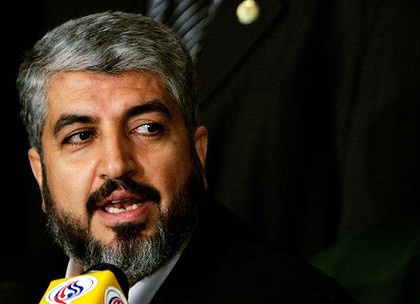Moulting Season: Arab Spring and Hamas' new policies

By: Mohammad Irani
With Hamas leaders taking tours across the Middle East, meeting pro-West rulers, who nowadays have turned into Bashar Assad’s sworn enemies, many political observers speculate that Hamas is molting to adapt itself to the new environment shaped by the Arab Spring. Khaled Mashal and Mahmoud Abbas have signed a new agreement brokered by Sheikh Hamad bin Jassim Al Thani, Prime Minister of Qatar, one of the most active players in the Bashar overthrow campaign. It seems all reasonable to think that is more occupied with the promising prospect of gaining regional weight rather than the fate of Palestinians, just as was the case with its approach towards the developments in Egypt, Libya, Yemen and Syria.
In the eyes of some observers, Hamas’ recent measures signal the group’s decision to strip off its military aspect, as Syria as its major base is in an erratic state, to metamorphose into a political party and to halt military operations against Israel. Turkey and Qatar are ready to prop up Hamas in this painful transition. Many experts believe that Hamas has already worn the garb of a political force, and its resistance image is gradually fading away. Bashar Assad’s battle with the Sunni majority, especially the Syrian branch of the Muslim Brotherhood of which Hamas is also an intellectual offshoot, may have also convinced Hamas to peel away from the Resistance Front and step in a path already trodden by other once freedom fighter Palestinian groups such as Fatah, the National Front and the Popular Front. In this new mode, Hamas has to abide by diplomatic norms, negotiate and yield to the realities of international diplomacy. Sooner or later, it will shut down its political bureau in Damascus and move to Doha, Cairo or Amman. Then would come the time of political games to take helm of the Palestinian Authority.
From another angle, Hamas’ recent diplomatic moves could be the result of fetters loosened by the Arab Spring. That is, as the Muslim Brotherhood has resurfaced in Arab politics with the overthrow of tyrants, Hamas has also found a breathing space, having a chance to find more friends beside Iran and Syria. As a regional player, it could establish better ties with the new Egypt, Tunisia, Libya and Yemen and fully realize its potential. Hamas’ affiliation with the Muslim Brotherhood has created new zones for maneuver in the Arab World, helping it to outperform Fatah. In the meantime, supporting Syria which is fighting against Hamas’ Muslim Brothers may lead to an internal division. In such a situation, realism and approaching the anti-Syrian front appears an inevitable choice.
Whatever the cause of Hamas’ new turn, it signals serious inside rift, and ambiguity over the future leadership of the group. Khalid Mashal’s decision to step aside from the position of head of the political bureau was justified with legal terminology, but the closure of the Damascus’ office of Hamas speaks of something else.

